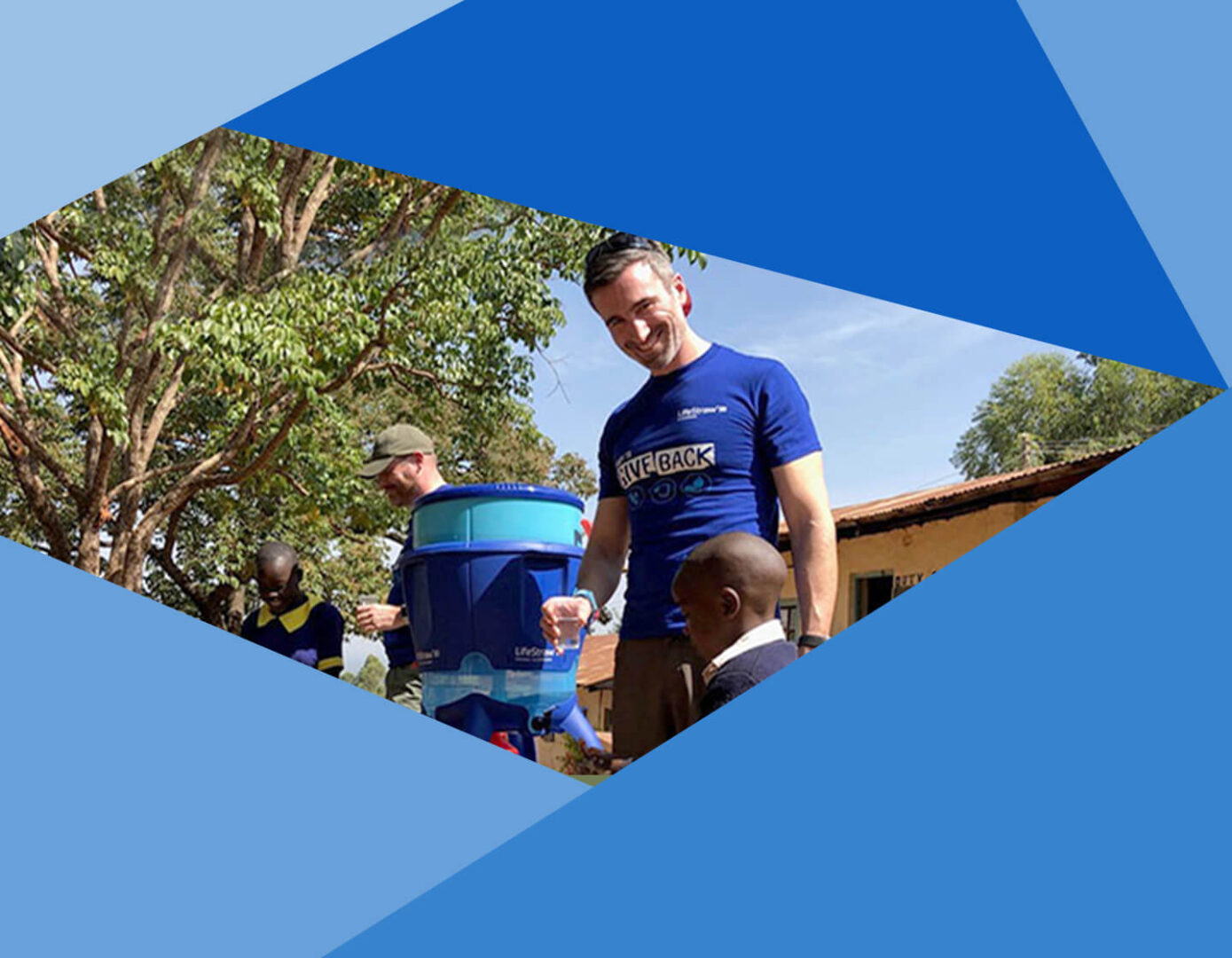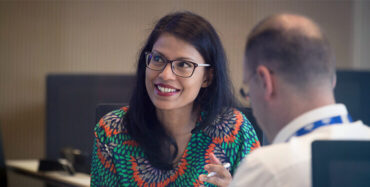
While COVID-19 has received the lion’s share of attention over the past year, those involved in the fight against many of the world’s other deadly diseases have had to tighten their belts as governments and donors have tightened their purse strings.
Nicolas Schornoz knows this fight all too well. Now Chief Financial & Operating Officer for Vestergaard Sàrl – a global health company that is on the front lines of tackling malaria and other deadly vector-born diseases in low- and middle-income countries worldwide. Schornoz sat down for a recent interview about a topic that continues to grow as sustainability finds its footing in large and small companies world-wide – reconciling doing business with doing good.
IMD: You have over 25 years of experience in global finance gained in Big Four – as well as smaller – multinationals in the EU, US and emerging markets. How does this background in finance serve you at a humanitarian entrepreneurship like Vestergaard?
Schornoz: All organizations need strong financial structures to sustain their operations – that is just common sense. I am the guardian of the company’s human and financial – tangible and intangible – resources. Vestergaard, like most other organizations, is no longer focusing on a 12-month period with fixed financial objectives but more on long-term strategic development and execution.
“Impacting people” is Vestergaard’s motto and at the heart of what we do, hence I am no longer thinking only in terms of ROI but also in terms of the effect that the company and its activities have on the world – on the environment, society and even governance of countries. In other words, my role involves making sure we are financially solid but that we also leave a positive footprint through our activities, which in turn addresses the UN Sustainable Development Goals.
IMD: So you don’t have to be an expert in public health to make a difference?
Schornoz: Absolutely not, and I’d go further and say that each one of us is responsible for doing our part. Private companies are making great strides in the public health arena. Technological innovation is so important to ensuring continued access to state-of-the-art health care, or in reducing poverty by supporting farmers and families in low-income countries with new, innovative products and services. Here the private sector plays a crucial role – Vestergaard’s entire innovation hub is devoted to creating scalable and sustainable solutions for the world’s most vulnerable people.
IMD: How has COVID-19 affected the work you’re doing with Vestergaard?
Schornoz: I have been at Vestergaard, the world’s largest bed net manufacturer, for more than 12 years, witnessing first-hand the global drive to scale up the fight against malaria. Yet COVID-19 has thrown a wrench in the works; we need to act against the Coronavirus while not forgetting the other diseases that so desperately need funding for prevention and treatment. Although we have made tremendous progress in fighting malaria with our partners over the last 10 years, we are seriously worried that the shockingly high death rates – 1,000,000 children killed each year in previous decades – will return.
IMD: As a C-suite executive for a company dedicated to doing good, what most influences your management style?
Schornoz: My dedication to teamwork is something fostered by my two decades in the Swiss Army – I retired in 2015 with the rank of Captain. This is also something that I learned at IMD, notably in the Swiss Army Crisis Training modules. I had the chance to be surrounded by excellent professionals who had strong expertise in their respective area of responsibility. I remember Professor Bill Fischer recommending that we surround ourselves with people wiser than us. Good managers are good people; in the end, whether it’s running an NGO or a Fortune 500 company, respect, collaboration and resilience are the keys to success.
IMD: Do you have any words of wisdom for how people – from senior managers to interns – can make a difference?
Schornoz: Don’t be afraid to open your eyes and refocus your mind’s eye as we learnt in the HPL – High Performance Leadership – program. Working for Vestergaard opened my eyes to the way people live all around the world – often without equal access to education, health care or clean safe water. As a father of three, I know that, in order to look my children in the eye, I have to do my part. And IMD opened my eyes to how exactly to implement the sound business principles that allow companies to thrive while pursuing humanitarian goals.
Just as our children are our biggest legacy in life, in the same way the quality of our teams is our biggest corporate legacy; so don’t be afraid to show them your true values and support them whenever needed. My CFO role evolved from a “cold shower” position to a business-focused strategic sparring partner – a partner who still has the left hand on the tap in case the temperature has to be adjusted.



